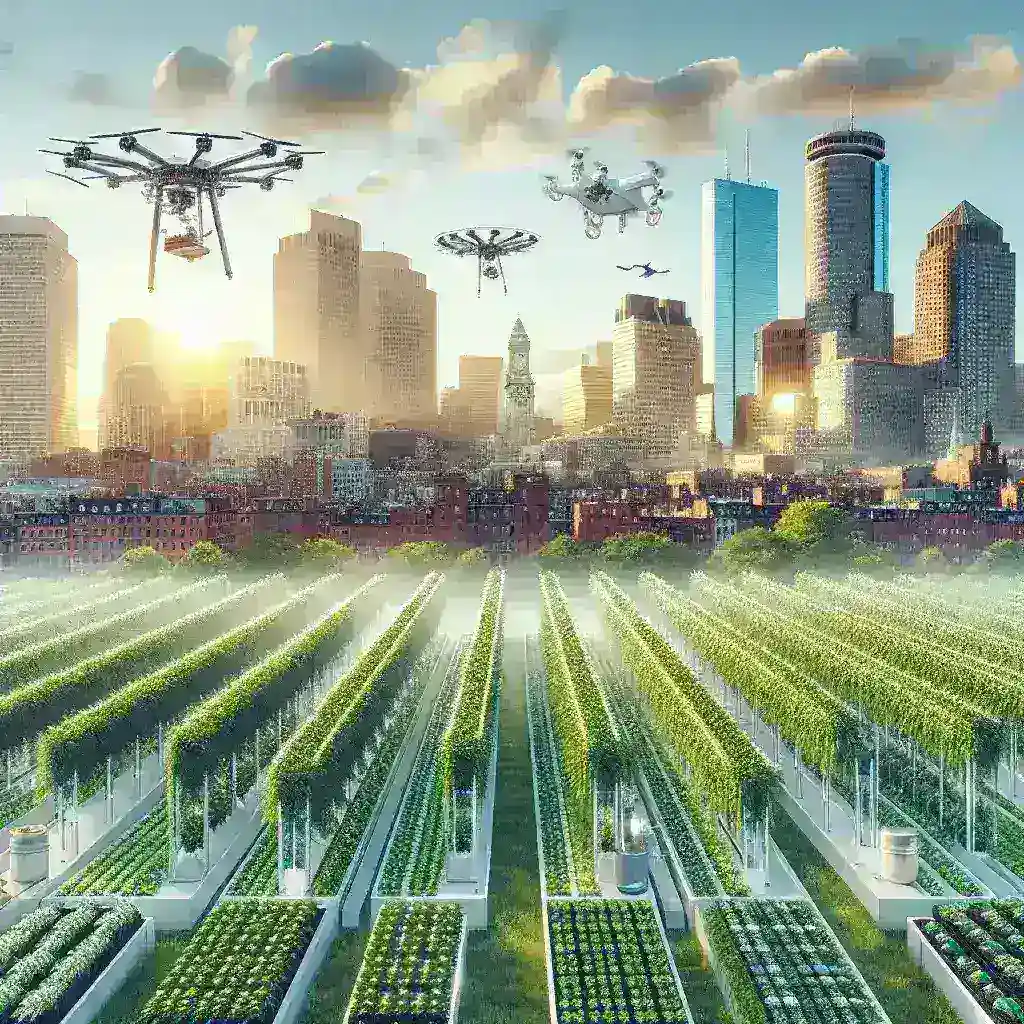Introduction
As urbanization continues to rise, cities are seeking innovative solutions to address food security and sustainability. Boston, known for its rich history and cutting-edge technology, is now becoming a hub for startups piloting AI-powered urban farming solutions. These initiatives not only aim to enhance food production but also contribute to a greener urban landscape.
The Rise of Urban Farming
Urban farming has gained momentum in recent years as cities look to repurpose underutilized spaces. These farming practices not only provide fresh produce but also help in reducing urban heat, improving air quality, and fostering community engagement. The integration of AI into these practices marks a significant shift in how we approach urban agriculture.
Historical Context
Urban agriculture is not a new concept; it has roots dating back to ancient civilizations. However, with rapid technological advancements, particularly in artificial intelligence, the methods and efficiencies of urban farming have evolved tremendously. In Boston, this evolution is particularly evident as several startups embark on this journey.
The Role of AI in Urban Farming
- Data Analysis: AI algorithms can analyze vast amounts of data, providing insights into optimal growing conditions, crop yields, and pest management.
- Automation: AI-powered systems can automate various farming processes, from planting to harvesting, making urban farming more efficient.
- Resource Management: With AI, farmers can optimize water usage, nutrient delivery, and energy consumption, leading to more sustainable farming practices.
Boston Startups Leading the Charge
Several Boston-based startups are making waves in the field of AI-powered urban farming. Let’s explore a few of these innovative companies that are shaping the future of local agriculture.
1. FarmBot
FarmBot is revolutionizing the way we think about home gardening. Utilizing an open-source robotic farming system, they enable users to grow their own food with precision. The integration of AI allows for real-time monitoring and adjustments to the growing conditions, ensuring optimal crop health.
2. Gotham Greens
Gotham Greens operates rooftop greenhouses across urban areas, including Boston. They harness AI to monitor the growth environment continuously, ensuring the freshest produce. Their commitment to sustainability is reflected in every aspect of their operations, from energy-efficient systems to water conservation measures.
3. Plenty
Plenty is redefining vertical farming by using AI to enhance productivity and reduce resource consumption. Their farms utilize machine learning to optimize the growing process, resulting in high yields of fresh produce in urban settings. This innovative approach aims to minimize food miles and maximize freshness.
Future Predictions
The integration of AI in urban farming is just the beginning. Experts predict that as technology continues to advance, we will see:
- Increased adoption of smart farming technologies across urban areas.
- Expansion of urban farms into previously neglected spaces.
- A greater emphasis on community-driven farming initiatives that leverage AI for local sustainability.
Pros and Cons of AI-Powered Urban Farming
Pros
- Enhanced efficiency and productivity in food production.
- Reduction in resource waste, promoting sustainability.
- Improved access to fresh produce in urban environments.
Cons
- High initial investment costs for technology and infrastructure.
- Potential job displacement as automation increases.
- Dependence on technology may pose risks during system failures.
Real Examples of Success
Boston’s startup ecosystem is ripe with examples of successful AI-powered urban farming initiatives. For instance, FreshBox Farms has taken the concept of vertical farming to new heights, successfully integrating AI for optimal growth cycles. Their produce can be found in local grocery stores, showcasing the tangible impact of technology in urban agriculture.
Cultural Relevance
Urban farming isn’t just about growing food; it’s about fostering community and connection. In Boston, these startups are creating spaces for education and collaboration. Through workshops and community events, they are engaging residents in the farming process, thus creating a culture of sustainability.
Conclusion
Boston-based startups are at the forefront of a revolutionary shift toward AI-powered urban farming solutions. By harnessing technology, these companies are not only transforming city landscapes but also fostering a more sustainable and food-secure future. As these initiatives grow, they pave the way for a new model of urban living where food is produced locally, sustainably, and intelligently. The future looks green for Boston’s urban farming scene, and the potential is limitless.



